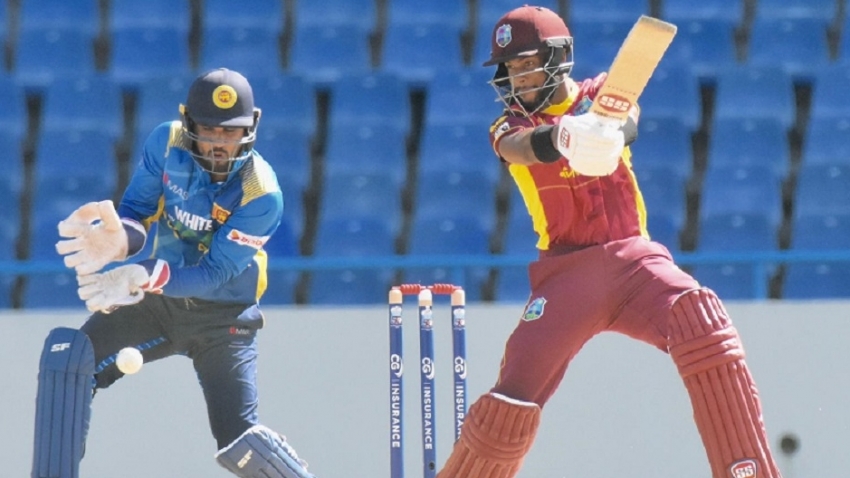 By Tony McWatt
By Tony McWatt
Ten of the fifteen matches the West Indies are scheduled to play in preparation for its participation in this year’s ICC 2021 T20 World Cup, to be held in the UAE this coming October, have now been completed. The West Indies’ recent second slate of five such matches against Australia revealed some additional and updated takeaways that can now be added to those that were identified during the preceding South Africa Series.
The first of these would be that based on both the team selections that were made during both Series and more importantly the performances against the Aussies, the West Indies’ best possible starting XI for the World Cup has now been identified. The evidence from the two Series would now suggest that in possible batting order 1) Evan Lewis 2) Lendyl Simmons 3) Shimron Hetmeyer 4) Nicholas Pooran 5) Kieron Pollard 6) Andre Russell 7) Fabian Allen 8) Jason Holder 9) Dwayne Bravo 10) Haydn Walsh and 11) Obed McCoy will most likely be the XI that will be chosen as automatic World Cup starters for the West Indies.
To this list, after his performances with the bat in the third and fifth matches of the Aussie Series and as a bowler in the latter, Chris Gayle’s name will now most certainly be added by the West Indies Selectors. Gayle’s actual inclusion in the West Indies starting XI will, however, seemingly only occur as either a number three batting alternative to Shimron Hetmeyer or if the West Indies feel confident enough in their five front-line bowlers: the seamers Obed McCoy, Dwayne Bravo, and Andre Russell complimented by the spin of Fabian Allen and Haydn Walsh, to deem Jason Holder as an unnecessary sixth bowler.
The identification of the first eleven or twelve, given Gayle’s apparently irrefutable credentials for inclusion, also suggests that dependent upon whether the West Indies’ eventual World Cup Squad composition is to be comprised of 15 or 18 players, only three or six spots would now remain to be firmly identified. Andre Fletcher’s continuous failure to make any meaningful contributions with the bat would suggest that his place as the back-up wicket-keeper batsman would now be “up for grabs!” Shai Hope’s outstanding success in an identical role in the longer ODI format would suggest that he would be the most likely candidate to replace Fletcher. An eventuality that may well be confirmed by Hope’s batting performances during the West Indies’ three ODI matches against the Aussies that will precede the Pakistan T20 Series.
In a similar manner, there also appears to be a need for an additional top-order batsman of the type that can bat deep into the innings. Darren Bravo would be the one being targeted for that role, as was indicated by his inclusion to the playing XI for the final T20 match against Australia. A good performance by Bravo in any of the three Aussie ODI’s will likewise should therefore confirm his World Cup Squad selection.
If the Squad composition is deemed to be fifteen, the final position will likely be reserved for an additional seamer. Sheldon Cottrell would seem to be the most likely candidate but the Selectors’ apparent preference for an outright quickie, fully capable of consistently producing deliveries in excess of 140 km, might result in either Fidel Edwards or Oshane Thomas being preferred.
If instead the Squad size is deemed to be larger at eighteen, my expectation would then be for all three, Cottrell, Thomas and Edwards to then be included, leaving the final available spot to be decided between Akeal Hosein and Kevin St Clair as a third spinner.
The third takeaway from the West Indies’T20 matches against the Aussies would be that the search for a “stabilizer” among the team’s batsmen is still continuing. Much has been said and written within the past few weeks, about the role Marlon Samuels’ had played in both the previous World Cup finals to eventually help the West Indies become champions. During the Australia T20’s Lendyl Simmons, Dwayne Bravo and Shimron Hetmeyer were all called upon to stabilize the West Indies innings at various times after the fall of early wickets. The forthcoming Pakistan T20’s could, therefore, very well see further flexibilities to the West Indies batting order as a means of identifying who would best be suited to fulfill the stabilizer role at the World Cup.
Takeaway number four has to be that, the West Indies batters have not as yet successfully addressed the issue of the number of dot balls faced during each of their t20 innings. Against the Aussies recorded dot balls in excess of 40 per innings was the established norm, as many as 54 being the number during the final T20 match of the Series. West Indies Head Coach Phil Simmons has admitted that it’s a cause for continued concern which he aims to have addressed and hopefully satisfactorily rectified during the forthcoming Pakistan T20 Series.
The fifth and final Australia T20 Series takeaway would be that the West Indies bowlers are still being found guilty of providing opposition batsmen with unacceptably high numbers of boundary balls. In the ten T20 matches the West Indies have played so far during their World Cup preparation campaign, five each against South Africa and Australia, our blowers have conceded a whopping total of 187 boundaries, fours and sixes combined, from 196 over bowled. That equates to almost one boundary, either a four or six, per over. It also means that when facing the West Indies bowlers opposition batsmen only have to know how to count in order to predict when they will be receiving the gift of a boundary ball. If it doesn’t come within balls one, two, and three, it definitely will by four, five, and six!
As alarming as it is that statistic is also suggestive of an inability to consistently bowl the lines and lengths and maintain boundary restricting overs that can create a level of scoreboard pressure that can ultimately induce rash stroke play and thereby cause wickets to fall. One would hope therefore that this will be an identified area of improvement for the West Indies bowlers during the upcoming final round of T20 World Cup preparation matches against Pakistan.

